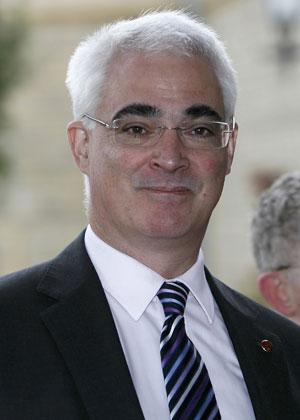Source: Xinhua
03-14-2009 09:17
HORSHAM, Britain, March 13 (Xinhua) -- G20 finance ministers and central bank governors arrived here Friday to hold discussions over how to deal with current financial crisis. The formal meeting will be held Saturday.
The G20 Finance Minister and Central Bank Governor Meeting, held in Horsham, southern part of England, and hosted by Alistair Darling, Chancellor of UK, is considered as a preparatory one to pave the way for G20 London Summit on April 2 with the topic of "stability, growth and jobs."
 |
| Britain's Finance Minister Alistair Darling arrives for the G20 Finance Ministers meeting at a hotel, near Horsham, in southern England March 13, 2009. (Xinhua/Reuters Photo) |
On Friday evening and Saturday, the finance ministers and central bank governors from both advanced economies and emerging and developing economies, will discuss such important issues as how to take short-term and long-term measures to deal with financial and economic crisis, how to reshape the global financial system and how to improve the role of the international financial institutions including International Monetary Fund.
Xie Xuren, China's Finance Minister, and Zhou Xiaochuan, Governor of China's central bank have arrived here, and they will set forth China's standpoints over such issues as how to increase the voice of emerging and developing economies in the international financial system, which is to be reshaped, and how to fight against trade and financial protectionism at the meeting.
Ahead of the G20 Finance and Central Bank Governors Meeting, divergences between the U.S. and the European Union (EU) have emerged and gradually widened . The U.S. hopes the London Summit will focus on how to increase spending to stimulate economy, while the EU wants to give priorities to reform the international financial system. European countries have little appetite to further build up their debts to stimulate their economies. Japan has backed America's standpoint, saying that April's G20 summit should focus on the need for immediate co-ordinated action to support the world economy rather than long-term efforts to reform the international financial system.
